
Bahir Dar: The Jewel of Ethiopia's Blue Nile
Bahir Dar, located on the southern shores of Lake Tana in northern Ethiopia, is a city brimming with natural beauty, rich history, and cultural significance. It serves as a gateway to the stunning Blue Nile Falls, also known as Tis Issat, which means 'smoking water' in Amharic. This majestic waterfall is one of the most spectacular sights in Ethiopia and is a must-visit for any traveler to the region. The city itself is adorned with palm-lined avenues and vibrant markets, offering a warm and welcoming atmosphere to visitors. Bahir Dar is also home to a number of historic monasteries and churches on the islands and peninsulas of Lake Tana. These ancient sites, some dating back to the 14th century, house incredible murals and religious artifacts that provide a deep insight into Ethiopia's Orthodox Christian heritage. In addition to its historical and natural attractions, Bahir Dar offers a range of modern amenities and activities. Tourists can enjoy boat trips on Lake Tana, where they may spot hippos and a variety of bird species, or explore the local cuisine in one of the city's many restaurants. The combination of Bahir Dar's serene landscapes, cultural richness, and friendly locals makes it an unforgettable destination for any traveler.
Local tips in Bahir Dar
- Visit the Blue Nile Falls early in the morning to avoid crowds and enjoy the best views.
- Take a boat tour to explore the ancient monasteries on Lake Tana's islands.
- Try the local dish 'Fasika' at a traditional restaurant for an authentic Ethiopian culinary experience.
- Carry cash, as not all places accept credit cards.
- Hire a local guide to learn about the rich history and culture of the area.
Bahir Dar: The Jewel of Ethiopia's Blue Nile
Bahir Dar, located on the southern shores of Lake Tana in northern Ethiopia, is a city brimming with natural beauty, rich history, and cultural significance. It serves as a gateway to the stunning Blue Nile Falls, also known as Tis Issat, which means 'smoking water' in Amharic. This majestic waterfall is one of the most spectacular sights in Ethiopia and is a must-visit for any traveler to the region. The city itself is adorned with palm-lined avenues and vibrant markets, offering a warm and welcoming atmosphere to visitors. Bahir Dar is also home to a number of historic monasteries and churches on the islands and peninsulas of Lake Tana. These ancient sites, some dating back to the 14th century, house incredible murals and religious artifacts that provide a deep insight into Ethiopia's Orthodox Christian heritage. In addition to its historical and natural attractions, Bahir Dar offers a range of modern amenities and activities. Tourists can enjoy boat trips on Lake Tana, where they may spot hippos and a variety of bird species, or explore the local cuisine in one of the city's many restaurants. The combination of Bahir Dar's serene landscapes, cultural richness, and friendly locals makes it an unforgettable destination for any traveler.
When is the best time to go to Bahir Dar?
Iconic landmarks you can’t miss
Kuriftu Resort and Spa Bahir Dar
Experience luxury and tranquility at Kuriftu Resort and Spa Bahir Dar, a stunning destination by Lake Tana for relaxation and rejuvenation.

Blue Nile Resort Hotel
Experience unparalleled luxury and natural beauty at Blue Nile Resort Hotel, your perfect getaway in Bahir Dar, Ethiopia.
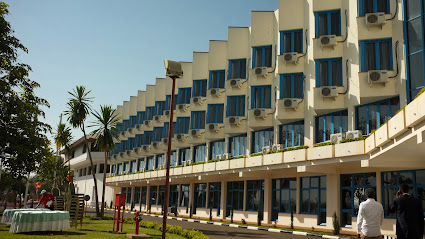
JACARANDA HOTEL ,BAHIR DAR
Experience the serene beauty of Bahir Dar at Jacaranda Hotel, a perfect blend of comfort and local culture near Lake Tana.

Unison Hotel
Experience unparalleled comfort and hospitality at Unison Hotel in Bahir Dar, the perfect gateway to Ethiopia's stunning landscapes and rich culture.

Delano Hotel, Bahir Dar
Discover the charm of Bahir Dar from the comfort of Delano Hotel, your gateway to Ethiopia's stunning landscapes and rich culture.

Homeland Hotel
Discover the beauty of Bahir Dar while enjoying a comfortable stay at Homeland Hotel, your home away from home in Ethiopia.
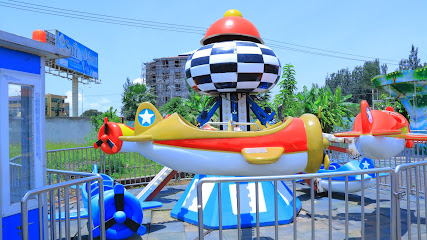
Naky Hotel
Experience the serene beauty of Bahir Dar at Naky Hotel, your perfect base for exploring Lake Tana and the Blue Nile Falls.

Tana Hotel
Experience comfort and local charm at Tana Hotel, your serene retreat in Bahir Dar, Ethiopia, near the stunning Lake Tana and cultural treasures.

Ura Kidane Mihret Monastery (ኡራ ኪዳነ ምሕረት ገዳም)
Explore the breathtaking Ura Kidane Mihret Monastery, home to stunning murals and rich Ethiopian Orthodox traditions in the heart of Zege.
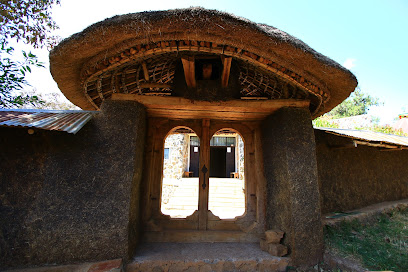
Bahir Dar Belay Zeleke International Airport
Discover the gateway to Ethiopia's natural beauty at Bahir Dar Belay Zeleke International Airport, your start to Lake Tana and the Blue Nile Falls.
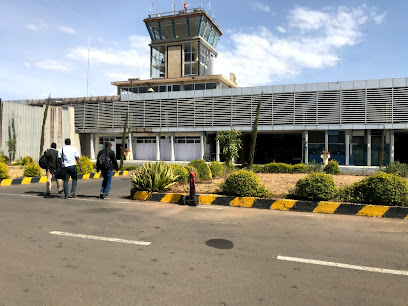
Blue Nile Hotel
Discover the beauty of Bahir Dar with a comfortable stay at Blue Nile Hotel, your gateway to Ethiopian culture and adventure.

Rahnile Hotel
Experience the charm of Bahir Dar at Rahnile Hotel, where comfort meets Ethiopian hospitality amidst stunning lakeside views.
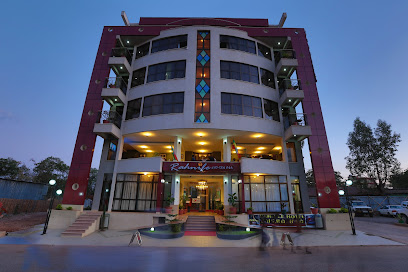
Abay Minch Lodge
Discover the beauty of Lake Tana at Abay Minch Lodge, where serene landscapes meet warm Ethiopian hospitality in Bahir Dar.

Narga Selassie
Explore Narga Selassie, an architectural marvel and spiritual sanctuary in Adahunat, Ethiopia, offering a unique blend of culture and tranquility.
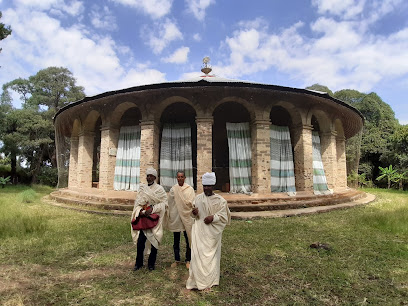
Olive Hotel and Spa
Experience the perfect blend of luxury and adventure at Olive Hotel and Spa in Bahir Dar, a gateway to stunning landscapes and rich culture.
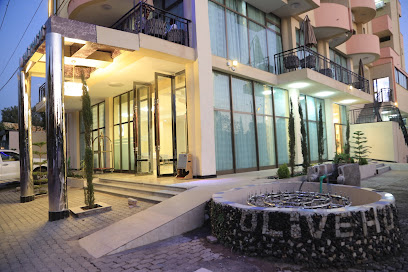
Unmissable attractions to see
Blue Nile Falls
Discover the breathtaking Blue Nile Falls in Ethiopia, a stunning waterfall known for its magnificent views and vibrant natural beauty.
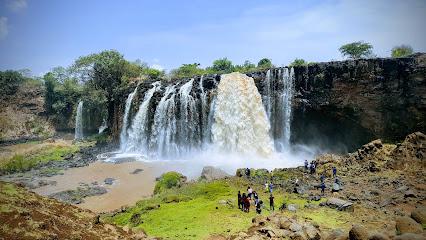
Ura Kidane Mihret Monastery (ኡራ ኪዳነ ምሕረት ገዳም)
Explore Ura Kidane Mihret Monastery, a serene sanctuary of art and faith in Zege, rich with Ethiopian Orthodox history and breathtaking lake views.
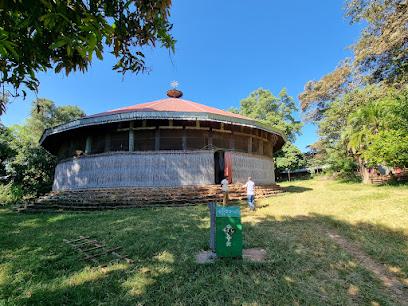
Blue Nile Bridge
Explore the Blue Nile Bridge in Bahir Dar, an iconic landmark that blends stunning views with rich Ethiopian history and culture.
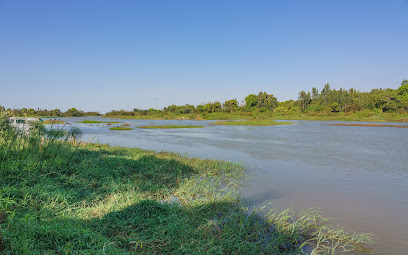
Yotor General Event Organizer
Experience the vibrant essence of Bahir Dar at Yotor General Event Organizer, a cultural hub filled with local treasures and lively markets.
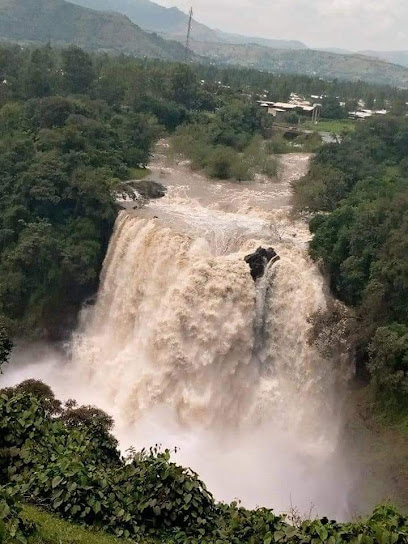
Martyrs Monument
Discover the Martyrs Monument in Bahir Dar, a powerful symbol of Ethiopia's struggle for freedom and resilience amidst breathtaking landscapes.
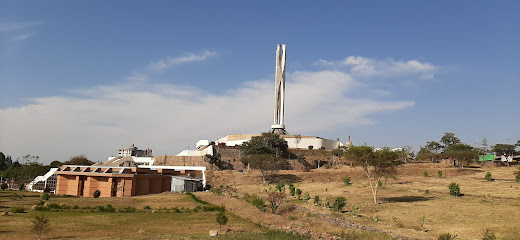
Ethio Visit Tours
Explore Ethiopia's breathtaking landscapes and rich culture with Ethio Visit Tours, your gateway to unforgettable adventures in Bahir Dar.
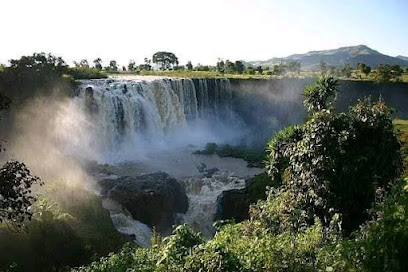
Lake Tana Biosphere Reserve
Explore the breathtaking landscapes and rich cultural heritage of Lake Tana Biosphere Reserve, Ethiopia's largest lake and a UNESCO Biosphere Reserve.
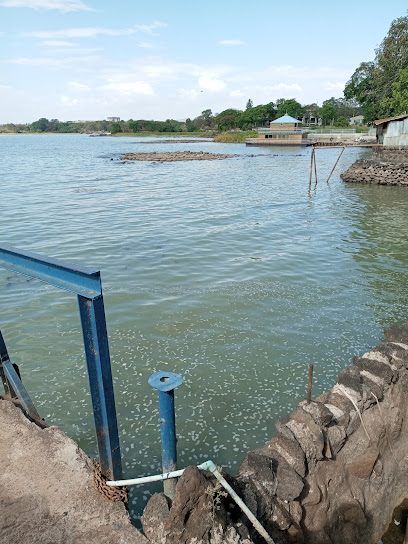
ሙን ላይት መናፈሻ ፓርክ
Discover the serene beauty of Bahir Dar Park, a lush green haven in Ethiopia perfect for relaxation, picnics, and picturesque views of Lake Tana.
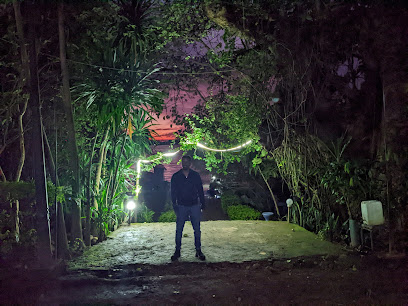
Tiss Abay Falls
Experience the breathtaking beauty and cultural significance of Tiss Abay Falls, a stunning natural attraction near Bahir Dar, Ethiopia.
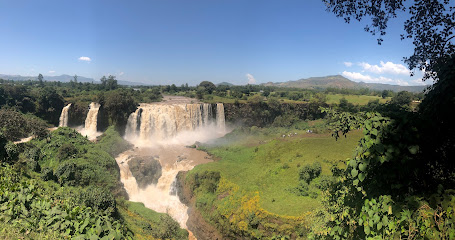
Tana view
Experience stunning panoramas and serene landscapes at Tana View, the perfect destination for nature lovers visiting Lake Tana in Bahir Dar.
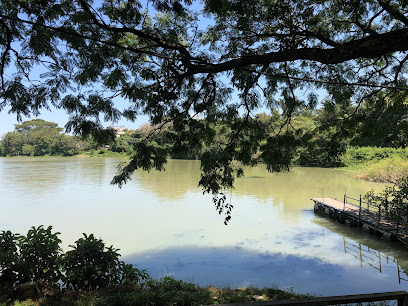
Lake Tana
Explore Lake Tana, Ethiopia’s largest lake, rich in culture, history, and natural beauty, perfect for serene adventures and unforgettable experiences.
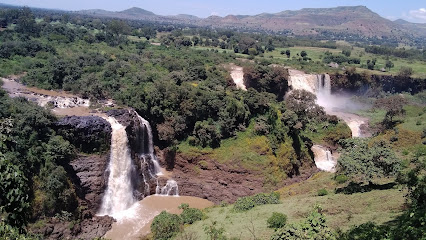
Woramit Selche Michael
Explore Woramit Selche Michael in Bahir Dar, a captivating tourist attraction showcasing Ethiopia's rich culture and stunning natural beauty.
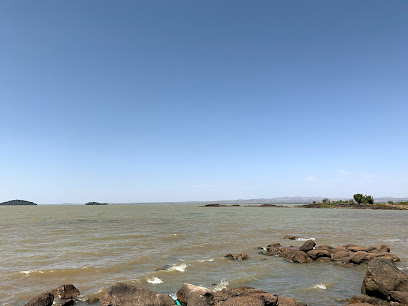
ማንጎ Mango
Discover the serene beauty of ማንጎ Mango Garden near Lake Tana, a tropical paradise perfect for relaxation and exploration in Bahir Dar.
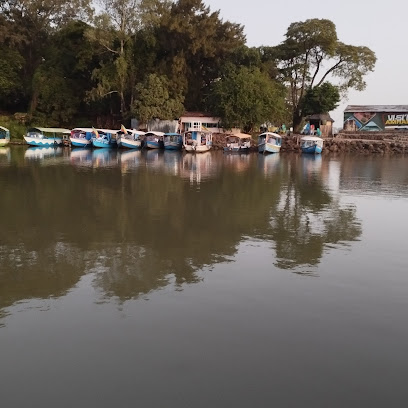
HIdar 14 public park
Explore the natural beauty of Hidar 14 Public Park in Bahir Dar, Ethiopia – a peaceful retreat for nature lovers and families.
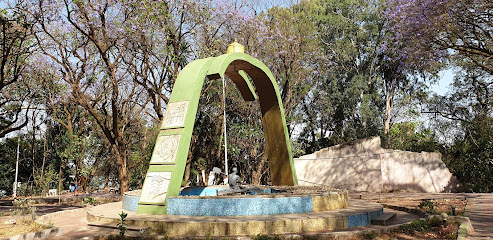
Shum abo
Explore the natural beauty and tranquility of Shum Abo Park in Bahir Dar, a perfect retreat for nature lovers and families alike.
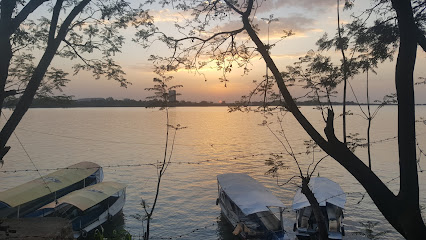
Essential places to dine
Wude Coffee
Experience authentic Ethiopian flavors at Wude Coffee in Bahir Dar - where tradition meets warmth.
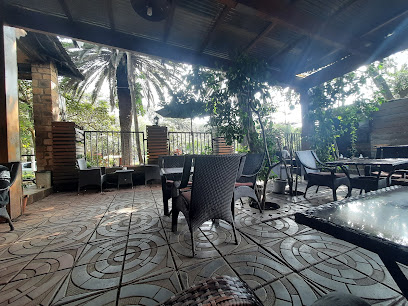
ጨጨሆ የባህል ምግብ ቤት-Checheho Cultural Restaurant
Discover the rich flavors of Ethiopia at Checheho Cultural Restaurant in Bahir Dar - where culture meets cuisine.
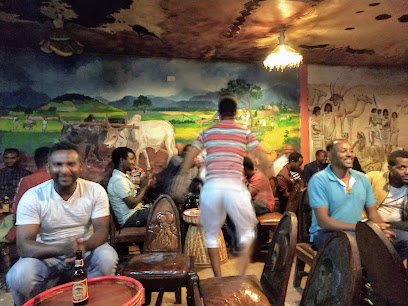
Misrak Restaurant ምስራቅ ልዩ ምግብ
Experience authentic Ethiopian cuisine at Misrak Restaurant in Bahir Dar – where every dish tells a story.
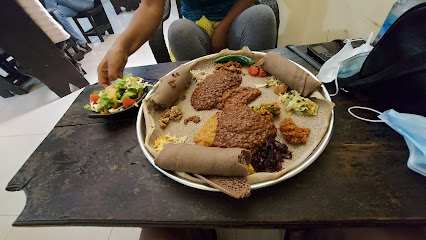
Bahir Dar Breeze
Discover authentic Ethiopian flavors at Bahir Dar Breeze, where breathtaking lake views meet exceptional dining experiences.
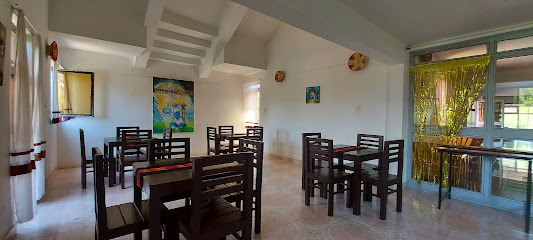
Blue Jayz Bar and Restaurant
Discover the flavors of Bahir Dar at Blue Jayz Bar and Restaurant – where local cuisine meets international charm.
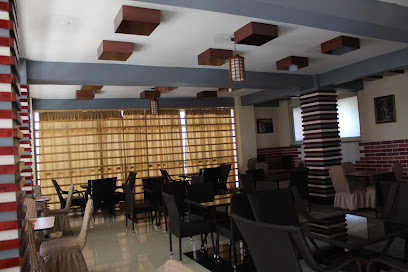
FOOD WAY RESTORANT&cafe
Discover delicious fast food delights at Food Way Restaurant & Cafe in Bahir Dar - where local flavors meet global favorites.
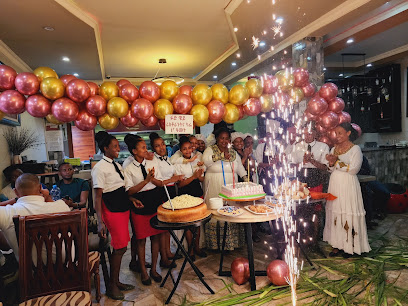
Lemat Restaurant
Experience authentic Ethiopian cuisine at Lemat Restaurant in Bahir Dar - where rich flavors meet warm hospitality.
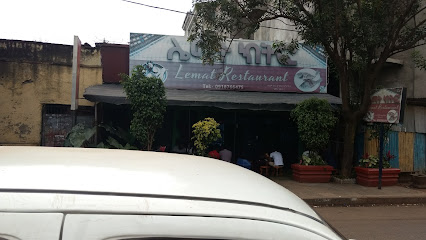
Taytu Restaurant
Experience the essence of Ethiopia through traditional dishes at Taytu Restaurant in Bahir Dar, where every meal tells a story.
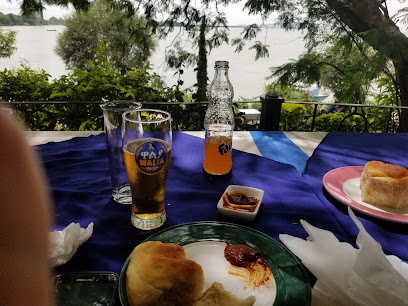
Hani Juice
Discover the vibrant flavors of Ethiopia at Hani Juice in Bahir Dar - a refreshing stop for travelers seeking delicious juices and local hospitality.
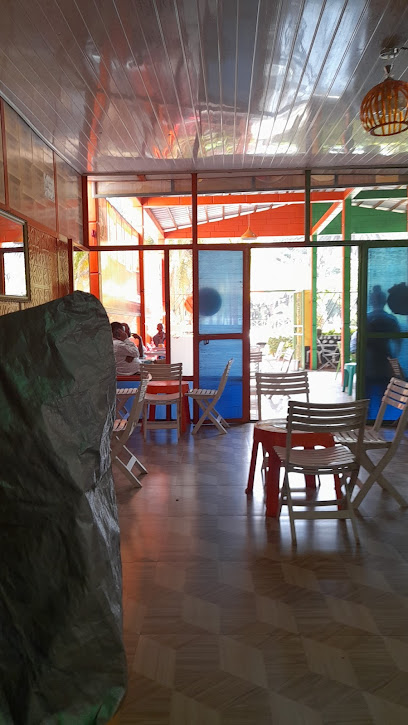
ይርዳው ዓሳ ቤት | Yiredaw Fish Restaurant
Experience authentic Ethiopian seafood at Yiredaw Fish Restaurant in Bahir Dar, where every dish tells a story from Lake Tana.
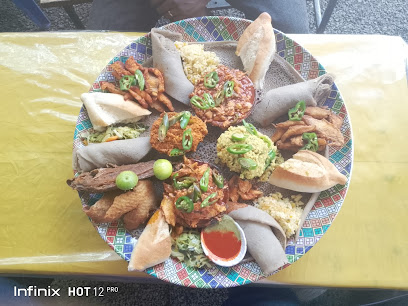
Ama-Zone Cafe and Restaurant
Experience the rich flavors of Ethiopia at Ama-Zone Cafe and Restaurant in Bahir Dar—where every meal tells a story.
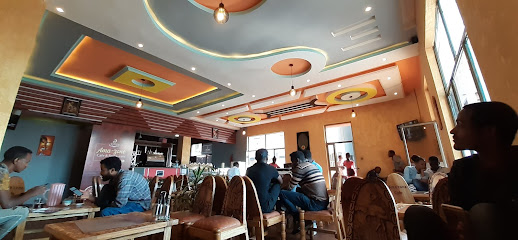
Goh cafe and restaurant
Discover authentic Ethiopian cuisine at Goh Cafe and Restaurant in Bahir Dar – where tradition meets taste in every dish.
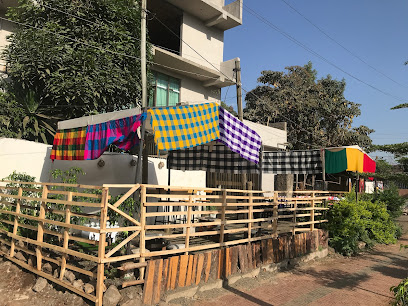
ዮናስ ቁርጥ ቤት
Experience authentic Ethiopian cuisine at ዮናስ ቁርጥ ቤት in Bahir Dar – where every dish tells a story.
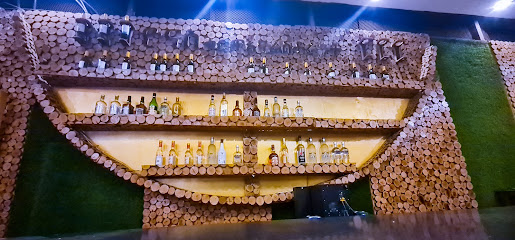
Andromeda Butchery and restaurant
Experience authentic Ethiopian cuisine at Andromeda Butchery and Restaurant in Bahir Dar—where tradition meets flavor.
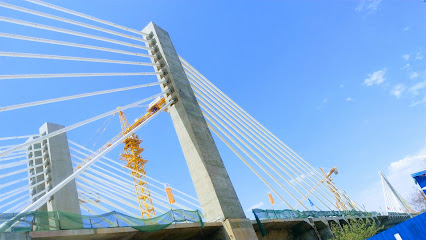
Dahlak Fish Restaurant | ዳህላክ ዓሣ ቤት
Experience the rich flavors of Ethiopian seafood at Dahlak Fish Restaurant in Bahir Dar—where tradition meets taste.
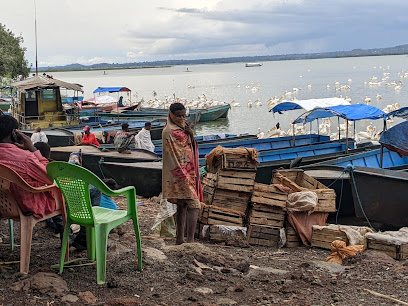
Markets, malls and hidden boutiques
Signal mall
Discover Bahir Dar's Signal Mall: A modern shopping paradise offering a variety of stores and local dining experiences in Ethiopia.
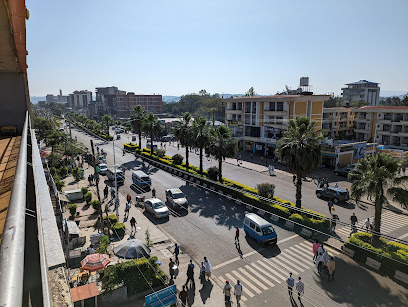
Meron Baltena
Discover a vibrant blend of local crafts and modern shopping at Meron Baltena in Bahir Dar, a must-visit destination for every tourist!
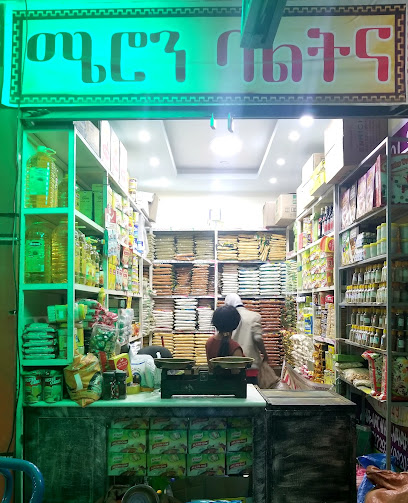
ለምለሚቱ ህንፃ
Discover the lively shopping experience at ለምለሚቱ ህንፃ in Bahir Dar, where local crafts and delicious cuisine await.
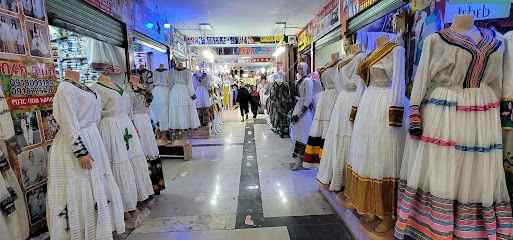
Yb fashion shoe
Explore YB Fashion Shoe in Bahir Dar for stylish footwear that blends tradition and modernity, set in a lively market atmosphere.

frew shop
Discover the charm of Bahir Dar at Frew Shop, a unique store offering local products and authentic Ethiopian culture.

Marie clothings center
Explore diverse Ethiopian fashion at Marie Clothings Center in Bahir Dar, where style meets local culture in a vibrant shopping experience.

Rich kids clothing Shop
Explore trendy fashion at Rich Kids Clothing Shop in Bahir Dar, offering unique styles and accessories for a stylish travel wardrobe.

ቅርስ የውሃና የግንባታ እቃዎች አቅራቢ
Experience the charm of Bahir Dar at its local general store, a vibrant spot for unique souvenirs and essential supplies.

Adanebookstore
Discover the literary treasure of Bahir Dar at Adanebookstore, where every book tells a story waiting to be uncovered.
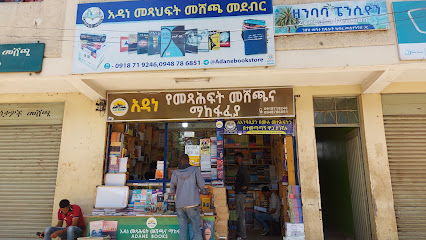
Hanimod Taillor
Explore the unique blend of traditional and modern fashion at Hanimod Tailor, a clothing store that embodies Ethiopian culture.

Kedir tebeb
Explore Kedir Tebeb Clothing Store in Bahir Dar for unique Ethiopian fashion and authentic cultural pieces that celebrate local artistry.
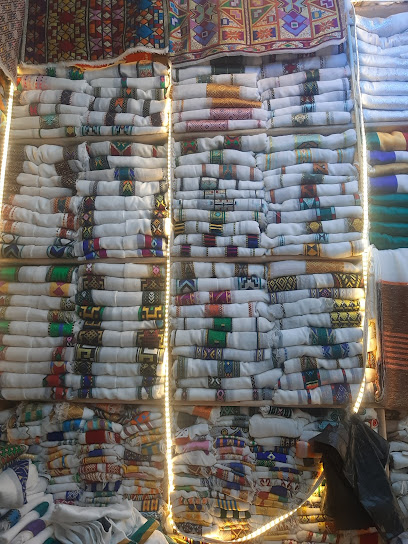
Shega Gebeya
Explore Shega Gebeya, the ultimate gift shop in Bahir Dar, for authentic Ethiopian crafts and unique souvenirs that showcase local artistry.
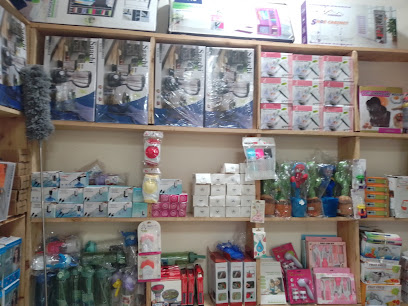
ሃጂ ሁሴን ሕንፃ
Discover local culture and unique goods at Haji Hussein General Store in Bahir Dar, a must-visit for an authentic Ethiopian experience.

ዋርካው የገበያ ማእከል
Dive into the vibrant atmosphere of Warkaw Market in Bahir Dar, where local culture and shopping come together in a colorful and authentic experience.
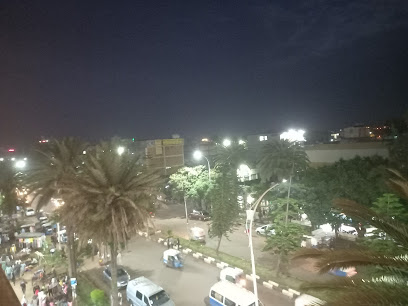
Amire Construction Material Shop
Discover a wide range of construction materials at Amire Construction Material Shop in Bahir Dar, perfect for builders and DIY enthusiasts alike.

Essential bars & hidden hideouts
Blue Jayz Bar and Restaurant
Experience the vibrant atmosphere of Blue Jayz Bar and Restaurant in Bahir Dar, where delicious local cuisine meets a lively bar ambiance.
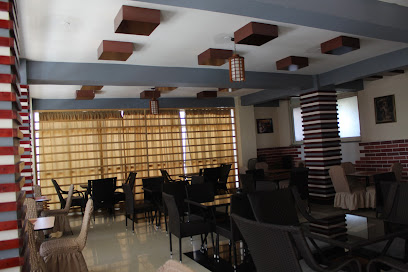
Balageru Cultural Club
Immerse yourself in the vibrant culture of Ethiopia at Balageru Cultural Club, where music, dance, and local flavors come together.
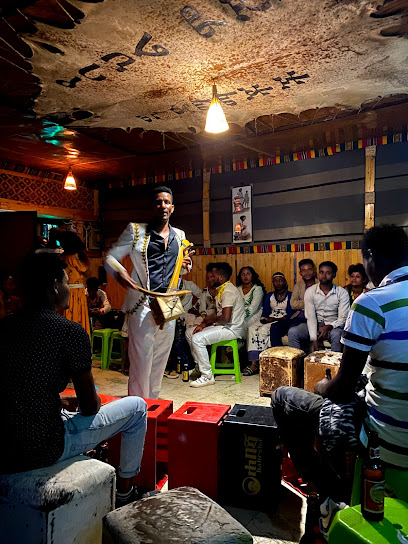
Amsale mitike cultural entertainment
Discover the heart of Ethiopian culture at Amsale mitike, a vibrant bar offering traditional drinks and live entertainment in Bahir Dar.
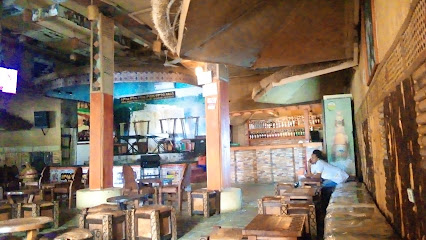
Climax
Discover the vibrant nightlife at Climax Bar in Bahir Dar, a perfect blend of local flavors and lively ambiance.
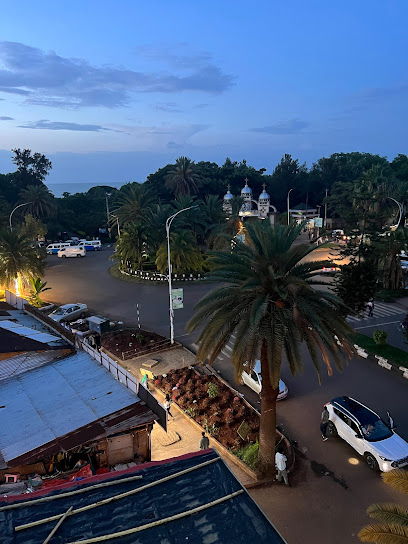
Miracle Lounge
Discover the vibrant nightlife at Miracle Lounge in Bahir Dar, where great drinks, live music, and a welcoming atmosphere await you.
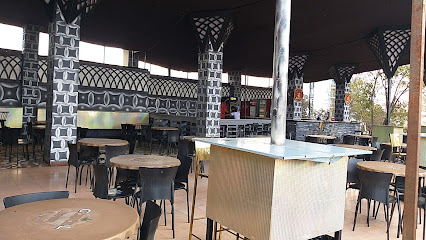
Arakii Bars
Experience Bahir Dar's lively nightlife at Arakii Bars - a vibrant hub for drinks, music, and local culture in the heart of Ethiopia.

Fidel Beer Garden
Discover relaxation at Fidel Beer Garden in Bahir Dar, offering a delightful selection of beers and a serene atmosphere to unwind and connect.
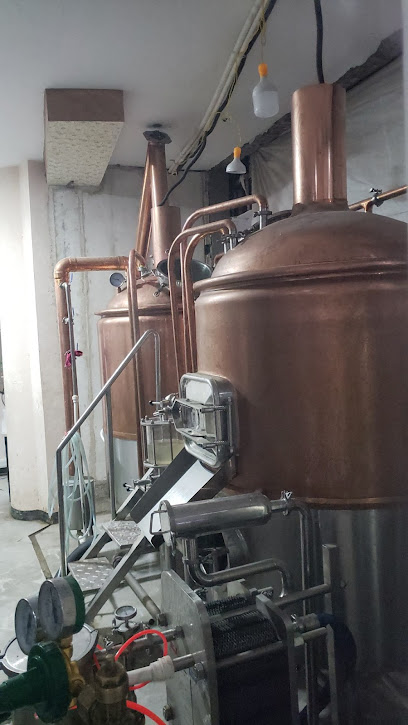
Tg fish cafe
Savor fresh fish dishes in a relaxed setting at Tg Fish Cafe, your gateway to authentic Ethiopian flavors in Bahir Dar.
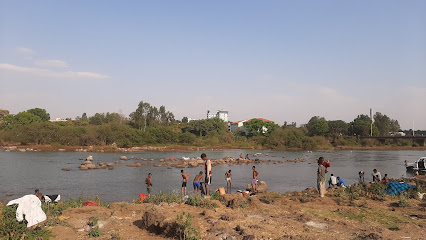
Atsedu Beer House
Discover the vibrant atmosphere of Atsedu Beer House in Bahir Dar, where cold beers and friendly faces await every traveler.

Nady HOUSE
Experience the vibrant ambiance of Nady HOUSE in Bahir Dar, where local flavors and international drinks come together for an unforgettable night.
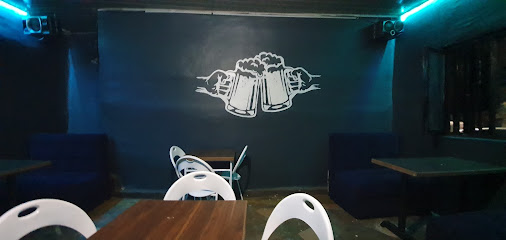
Mac sub lounge
Experience the vibrant culture and unique ambiance of Mac Sub Lounge in Bahir Dar—a perfect retreat for relaxation and socializing.
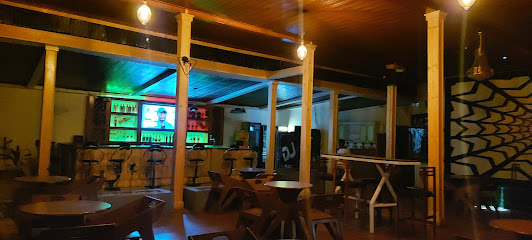
Hiber restaurant
Experience authentic Ethiopian cuisine and warm hospitality at Hiber Restaurant in Bahir Dar, a must-visit culinary gem.
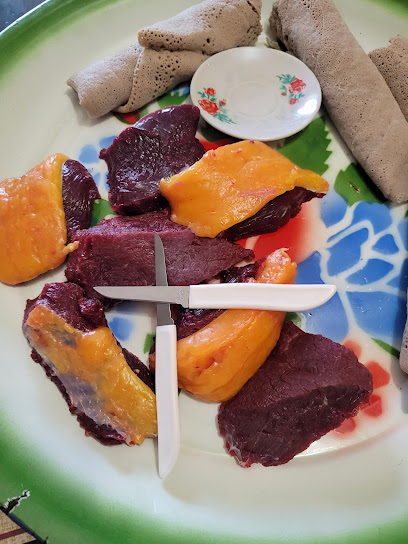
መከነሰላም
Discover the charm of መከነሰላም, a cozy bar in Bahir Dar, blending local culture with refreshing drinks for an unforgettable experience.

Banchu Grocery and Snack
Experience the essence of Ethiopian snacks and beverages at Banchu Grocery and Snack in Bahir Dar, a must-visit for culinary enthusiasts.
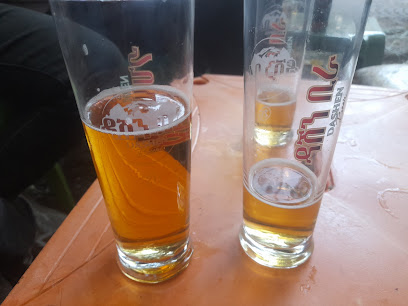
Limalemo Bar
Experience the lively atmosphere of Limalemo Bar in Bahir Dar, where culture and refreshment blend seamlessly for an unforgettable night out.

Local Phrases
-
- Helloሰላም
[selam] - Goodbyeዋላ
[wala] - Yesአዎ
[awo] - Noአይ
[ay] - Please/You're welcomeእባኮ/አዎ
[ebako/awo] - Thank youአመሰግናለሁ
[ameseginalehu] - Excuse me/Sorryአስተማር
[astemar] - How are you?እንዴት ነህ?
[endet neh?] - Fine. And you?ጠንካው. እኔ?
[tenkaw. ene?] - Do you speak English?እንዴት እንጀራለሁ?
[endet enjeralhu?] - I don't understandአልተወሰነኝ
[altesenagn]
- Helloሰላም
-
- I'd like to see the menu, pleaseማኑበርሽ እንዴት ይመልከቱ
[manbersh endet yemelketu] - I don't eat meatአልተመከረኝ
[altemekeragn] - Cheers!ሰላም!
[selam!] - I would like to pay, pleaseእኔ እስከ እወድሻለሁ
[ene eske ewedeshalehu]
- I'd like to see the menu, pleaseማኑበርሽ እንዴት ይመልከቱ
-
- Help!እንዴት!
[endet!] - Go away!መቀነሽ!
[mekensh!] - Call the Police!ፖሊስ አይደው!
[polis aydew] - Call a doctor!ሰውራ አይደው!
[swera aydew] - I'm lostእኔ ተመልከት
[ene temelket] - I'm illእኔ ህመም
[ene hemem]
- Help!እንዴት!
-
- I'd like to buy...ስልጣና እንዴት እመልከት
[siltana endet emelket] - I'm just lookingበማወቅ ነኝ
[bemawak ne] - How much is it?በዚህ ብር ነበረ?
[bezi bira neber?] - That's too expensiveስምምነት ነው
[simmenet new] - Can you lower the price?ደምሽ ማስቀመጥ አልባኮት?
[demesh masakemet albakot?]
- I'd like to buy...ስልጣና እንዴት እመልከት
-
- What time is it?ሰአሊ ነው?
[seali new?] - It's one o'clockአንድ ሰዓት ነው
[and se'at new] - Half past (10)ሰአሊ በስምም
[seali besimmen] - Morningጠዋት
[tewat] - Afternoonነገር
[negar] - Eveningማታ
[mata] - Yesterdayትናንሽ
[tansha] - Todayዛሬ
[zare] - Tomorrowነገ
[neg] - 1አንድ
[and] - 2ሁለት
[hulet] - 3ሶስት
[sost] - 4አራት
[arat] - 5አምስት
[amsost] - 6ስድስት
[sedest] - 7ሰባት
[sebat] - 8ስምንት
[simint] - 9ዘጠኝ
[zeten] - 10አስር
[asir]
- What time is it?ሰአሊ ነው?
-
- Where's a/the...?ለምጥ ነው ...?
[lemit new ...?] - What's the address?አድራሻ ምን ነው?
[adrasa min new?] - Can you show me (on the map)?ለምጥ ነህ (በአይንቲ)?
[lemet neh (beainty)?] - When's the next (bus)?ቀጣይ ሰዓት ነው?
[k'tay se'at new?] - A ticket (to ....)ትኬት (ለ ....)
[tiket (le ....)]
- Where's a/the...?ለምጥ ነው ...?
History of Bahir Dar
-
Bahir Dar's history stretches back to ancient times, with evidence indicating that the area has been inhabited for centuries. The city is situated on the southern shores of Lake Tana, the largest lake in Ethiopia and the source of the Blue Nile, which has been a cradle of Ethiopian civilization. Archaeological findings suggest that the region was a significant center for early Christian communities and other ancient cultures.
-
Lake Tana is home to numerous ancient monasteries and churches, many dating back to the 14th century. The monasteries, such as those on the islands of Daga Estifanos and Kebran Gabriel, have played a crucial role in the spiritual and cultural life of the region. They were centers of learning, containing invaluable manuscripts and religious artifacts. These monasteries have been a pilgrimage site for Ethiopian Orthodox Christians for centuries.
-
During the 17th and 18th centuries, Bahir Dar was influenced by the nearby city of Gondar, which served as the capital of Ethiopia. This period saw the construction of castles and the flourishing of art and architecture. The proximity to Gondar meant that Bahir Dar benefited from the economic and cultural activities of the capital. The influence of Gondar's architectural style can still be seen in some of Bahir Dar's older structures.
-
Bahir Dar, like much of Ethiopia, was affected by the Italian occupation from 1936 to 1941. The Italians left their mark on the city's infrastructure, with several buildings and roads constructed during this period. The occupation had a lasting impact on the city's development, and some of the Italian-era structures still stand today, serving as a reminder of this tumultuous period in Ethiopian history.
-
In recent decades, Bahir Dar has undergone significant modernization and development. The city has grown into a major hub for tourism, thanks to its natural beauty and cultural heritage. The construction of the Blue Nile River Bridge in the 1960s and the establishment of Bahir Dar University have been key milestones in the city's recent history. Today, Bahir Dar is known for its vibrant markets, beautiful lakeside views, and as a gateway to exploring the historic sites of the Lake Tana region.
-
In 2015, the Lake Tana region, including Bahir Dar, was designated as a UNESCO Biosphere Reserve. This recognition highlights the area's ecological significance and the efforts to preserve its unique biodiversity. The biosphere reserve status promotes sustainable development and conservation, ensuring that the natural beauty and cultural heritage of Bahir Dar are protected for future generations.
-
The Blue Nile Falls, known locally as Tis Issat, meaning 'Water that Smokes,' is one of the most significant natural landmarks near Bahir Dar. Historically, the falls have been a crucial part of the local economy and culture. They attract visitors and pilgrims and have been a source of inspiration for countless generations. The falls play a vital role in the hydrology of the region and are an integral part of the local ecosystem.
Bahir Dar Essentials
-
Bahir Dar is accessible via Bahir Dar Airport (BJR), situated approximately 8 kilometers from the city center. Ethiopian Airlines operates daily flights from Addis Ababa, the capital city. For those preferring ground transportation, buses and private vehicles can be used. The road journey from Addis Ababa to Bahir Dar takes roughly 10-12 hours, offering scenic views of the Ethiopian countryside.
-
In Bahir Dar, local transportation options include minibuses, tuk-tuks (known locally as 'Bajaj'), and taxis. Minibuses are the most economical option, while Bajajs provide a quicker and more private mode of transport. Taxis are relatively affordable but ensure you agree on the fare before starting your journey. For exploring the city and nearby attractions, renting a bicycle or taking a boat trip on Lake Tana is highly recommended.
-
The official currency in Ethiopia is the Ethiopian Birr (ETB). While major hotels and some restaurants accept credit cards, it is advisable to carry cash, especially for smaller establishments and local markets. ATMs are available in Bahir Dar, and currency exchange services can be found at banks and hotels.
-
Bahir Dar is generally considered safe for tourists. However, petty crimes like pickpocketing can occur, especially in crowded areas. Avoid walking alone at night in poorly lit areas and always keep an eye on your belongings. Neighborhoods like the bus station area can be prone to scams targeting tourists, so stay vigilant and avoid unsolicited offers of assistance.
-
In case of an emergency, dial 911 for immediate assistance. Bahir Dar has a local police station and medical facilities, including the Felege Hiwot Referral Hospital. It is advisable to have travel insurance that covers medical emergencies. For minor health issues, there are several pharmacies around the city where you can purchase over-the-counter medications.
-
Fashion: Do dress modestly, especially when visiting religious sites. Avoid wearing revealing clothing. Religion: Do respect local customs and traditions. Always remove your shoes before entering churches and monasteries. Public Transport: Do be respectful and give up your seat to elderly passengers. Don't eat or drink on public transport. Greetings: Do greet people with a handshake. A slight bow of the head is also a sign of respect. Eating & Drinking: Do try local delicacies and accept food offerings graciously. Don’t refuse hospitality, as it is considered impolite.
-
To experience Bahir Dar like a local, visit the Bahir Dar Market where you can buy fresh produce and traditional Ethiopian goods. Engage with locals, as they are often friendly and willing to share stories about the city's history and culture. Don't miss visiting the Blue Nile Falls and the monasteries on Lake Tana, which offer unique insights into Ethiopia's rich heritage. For a relaxing evening, take a stroll along the lakeside and enjoy the sunset.
Trending Landmark in Bahir Dar
-
Kuriftu Resort and Spa Bahir Dar
-
Blue Nile Resort Hotel
-
JACARANDA HOTEL ,BAHIR DAR
-
Unison Hotel
-
Delano Hotel, Bahir Dar
-
Homeland Hotel
-
Naky Hotel
-
Tana Hotel
-
Ura Kidane Mihret Monastery (ኡራ ኪዳነ ምሕረት ገዳም)
-
Bahir Dar Belay Zeleke International Airport
-
Blue Nile Hotel
-
Rahnile Hotel
-
Abay Minch Lodge
-
Narga Selassie
-
Olive Hotel and Spa
Nearby Cities to Bahir Dar
-
Things To Do in Gondar
-
Things To Do in Debre Markos
-
Things To Do in Lalibela
-
Things To Do in Mekele
-
Things To Do in Axum
-
Things To Do in Addis Ababa
-
Things To Do in Adi Quala
-
Things To Do in Mendefera
-
Things To Do in Teseney
-
Things To Do in Adi Keyh
-
Things To Do in Dekemhare
-
Things To Do in Asmara
-
Things To Do in Keren
-
Things To Do in Awasa
-
Things To Do in Dire Dawa








